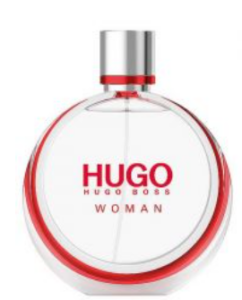On 13 October 2022 the Court of Justice (CJ) issued a preliminary ruling on corrective measures under the Enforcement Directive 2004/48. In this case (Case C-355/21), Procter & Gamble filed a trademark infringement claim against the Polish company perfumesco.pl. Procter & Gamble produced the perfume under the exclusive licence of the HUGO BOSS word-trademark. In Poland, online retailer Perfumesco.pl offered “testers” (perfumes that were not intended for sale and clearly labelled as such), as well as products that had been placed on the market outside the territory of the EEA, and products whose barcodes on the packaging had been removed or covered. The description said that these samples smell the same as the full-size product.

The Polish courts allowed the destruction of the seized goods, but later on, the Polish Supreme Court decided to ask the CJ whether the destruction measure should only include pirated goods or also genuine goods from the grey market. The Polish Supreme Court expressed doubts about whether goods could be destroyed if they were not “illegally manufactured or marked,” as required by national law.
The commented judgment rightly dispels concerns about Polish Article 286 of the Industrial Property Law. The national law states that the court may decide on the infringer’s unlawfully manufactured or marked products, as well as the means and materials used to produce them, at the request of the intellectual property right holder. The court may order that infringing goods be removed from the market, returned to the rightful owner, or destroyed. When making a decision, the courts consider the gravity of the infringement as well as the interests of third parties. Also, Article 10(1) of Directive 2004/48 (Enforcement Directive) states that a judge may order “destruction” of goods to enforce intellectual property rights.
As a result, the CJ interpreted the concept of “infringement of an intellectual property right” and ruled on the conditions for requesting the destruction of infringing EU trade mark goods. The CJ answered that all goods found to infringe any intellectual property rights are covered by Article 10 Directive 2004/48 without excluding destruction in the case of any of those infringements (para. 49). Therefore, genuine goods that infringe intellectual property rights because they were unlawfully imported into the EEA (as per the EEA Agreement, the EU rules on exhaustion apply in the entire EEA) may be destroyed. No Member State may enact contrary national legislation. It is always up to the judge to weigh the seriousness of the infringement against the remedies ordered, as well as the interests of third parties (para. 41).
In other words, the owner of an EU trade mark can ask for the destruction of goods which were manufactured by the trade mark holder or licensee, but sold in the EEA without consent. This means that original goods whose “only flaw” is that they are not exhausted under Article 15 EUTMR (or the equivalent national provision) may be ordered to be destroyed, but – at the same time – this is not a “must” in every infringement situation. Original perfume testers, of course, may not be sold without the consent of the trade mark owner. Furthermore, EU law provides a minimum standard of protection to trade mark owners that cannot be more narrowly regulated in member state regulations, including the Polish Industrial Property Law. As a result, if EU regulations provide for the right of the trade mark owner to demand the destruction of perfume testers placed on the market without his consent, it is not possible to rely on a provision of Polish law—to limit the trade mark owner’s rights. The CJ made clear that the measures that may be imposed in response to an infringement of an intellectual property right (in addition to those listed in Art. 10(1) Directive 2004/48) must be determined on a case-by-case basis by the competent judicial authorities. So the “not exhausted” original products may be destroyed if the judge decides so!
_____________________________
To make sure you do not miss out on regular updates from the Kluwer Trademark Blog, please subscribe here.


